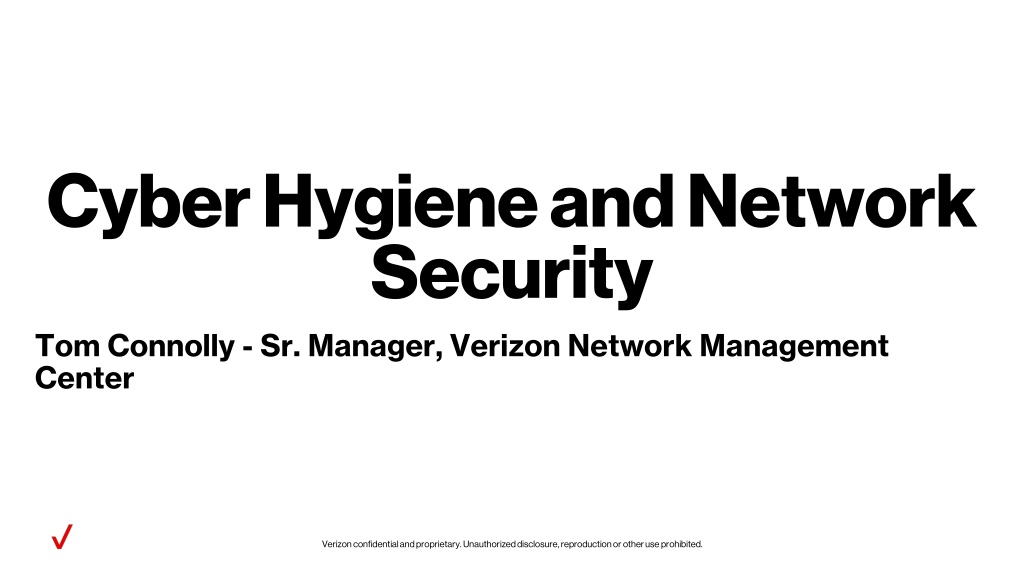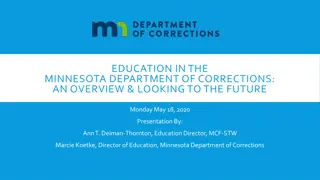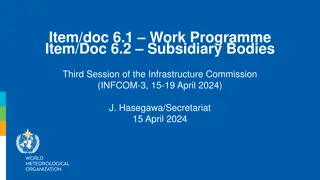
Network Security Insights from Cyber Hygiene Expert
Gain knowledge on cyber hygiene, network security, and digital citizenship from an experienced telecommunications professional. Learn about securing devices, practicing digital literacy, and more to enhance your online safety and understanding.
Download Presentation

Please find below an Image/Link to download the presentation.
The content on the website is provided AS IS for your information and personal use only. It may not be sold, licensed, or shared on other websites without obtaining consent from the author. Download presentation by click this link. If you encounter any issues during the download, it is possible that the publisher has removed the file from their server.
E N D
Presentation Transcript
Cyber Hygiene and Network Security Tom Connolly - Sr. Manager, Verizon Network Management Center Verizon confidential and proprietary. Unauthorized disclosure, reproduction or other use prohibited.
Background Graduated from the University of Michigan, Economics Working in telecommunications for 25 years in various roles. Front-line customer support (dial-up, web hosting, high-speed services) Network infrastructure - edge/core routing and switching Security - network edge as well as user best practices Collaborations with internal teams to help secure networks and customers internally and externally. Verizon confidential and proprietary. Unauthorized disclosure, reproduction or other use prohibited.
Digital Citizenship Empathy How the Internet Works Acknowledging the Digital Divide Understanding User Data Digital footprint and the use of tracking items, in addition to user accounts, passwords, etc. Understanding different approaches from different people, not everyone on the Internet has a shared experience. Understanding the difference between text-based communication and live/in-person. Verizon confidential and proprietary. Unauthorized disclosure, reproduction or other use prohibited.
Questions? Verizon confidential and proprietary. Unauthorized disclosure, reproduction or other use prohibited.
Cyber Hygiene Practicing Digital Literacy Clickbait, Phishing, misleading information and empathy. Practicing Digital Wellness Knowing when to take a break. Verizon confidential and proprietary. Unauthorized disclosure, reproduction or other use prohibited.
Securing Devices -Passwords Passwords are the first layer of securing devices. As computing power has increased, the ability of bad actors to more quickly brute force passwords. A previously compromised password is always considered instant for brute force attack. What do we do? Never reuse passwords. Change passwords that have been compromised immediately. Where possible, use 2-factor authentication. Specifically - use hard tokens or soft tokens. SMS is the least secure 2FA. Verizon confidential and proprietary. Unauthorized disclosure, reproduction or other use prohibited.
Securing Devices -Access Control In addition to passwords/accounts, limiting access to systems from specific resources is critical. Limiting device control to specific interfaces is a best practice. Access Control Lists (ACLs) are used in network elements to assign access based on source IP addresses, ports/protocols. ACLs will secure network elements directly by limiting access to the management of the device. ACLs applied against the control plane or management interface. ACLs can also secure networks by limiting the type(s) of traffic that are allowed through the network. ACLs applied to interfaces to permit/deny specific traffic. Verizon confidential and proprietary. Unauthorized disclosure, reproduction or other use prohibited.
Questions? Verizon confidential and proprietary. Unauthorized disclosure, reproduction or other use prohibited.


